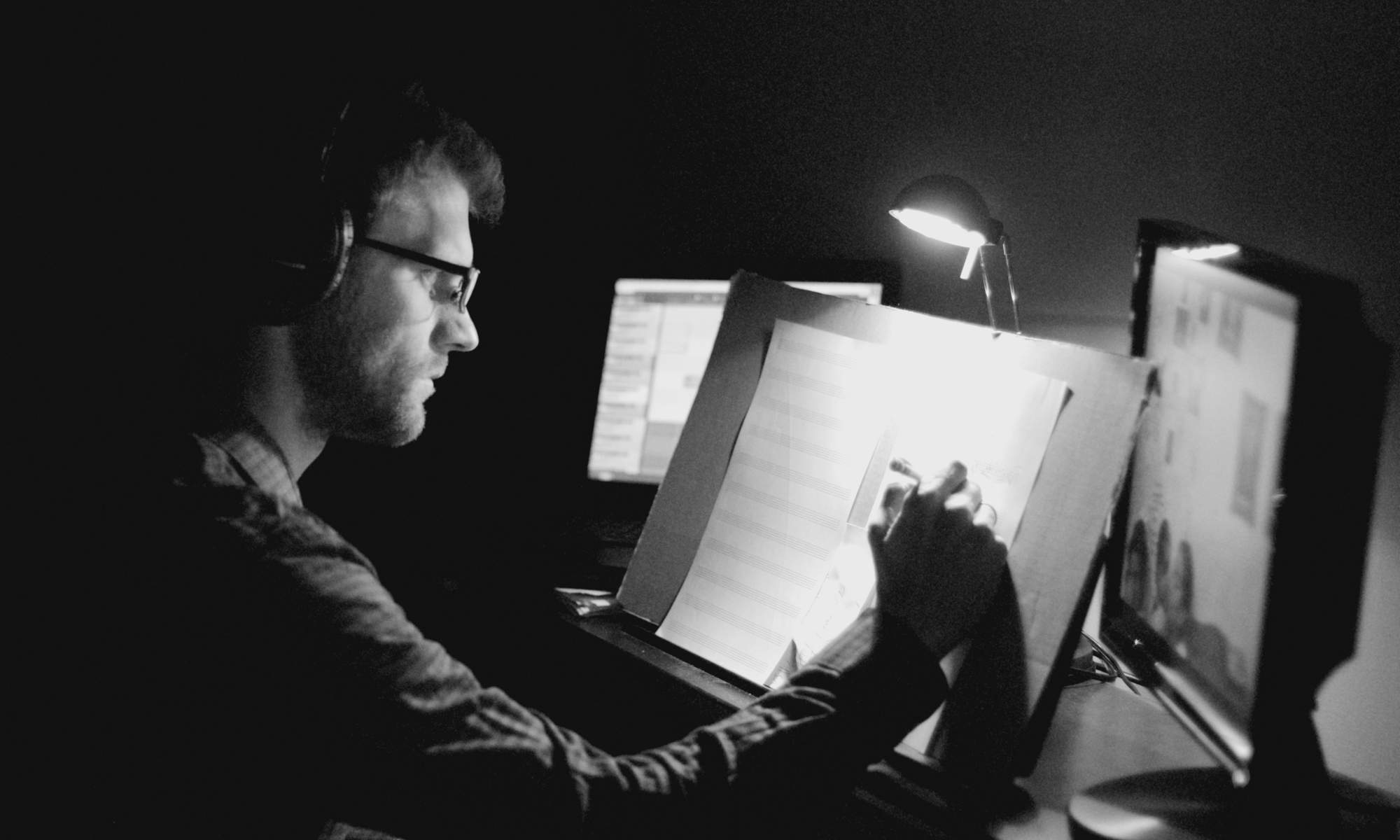The past several years have brought me opportunities as a film composer, both locally in Chicago and for international clients. My film composition exhibits the best qualities of custom work – timing and mood meticulously matched with the story and affecting its pacing. While each of those elements are commonly available individually in licensed tracks, the way the three seamlessly interact with a film makes the soundtrack fit what is onscreen in the most inconspicuous yet effective way. Rather than choosing several pieces of music and cutting between them to achieve changes in moods or pacing, my work navigates those needs all within a single music stream.
Who am I?
I am a classically-trained composer and cellist. I’ve written music for documentaries and short films since 2004. I take pride in my ability to be a stylistic chameleon; I work in a variety of genres and bring that experience with me to match the vision of each director. From earthy Middle Eastern music to synthesizer-driven beats, from edgy string quartet writing to slowly-transitioning minimalist textures, my work is broad, diverse, and closely-tailored to each project.
Film Composition Process pt 1 – Lay the Groundwork
Potential clients may wonder about the process of working with me as a composer. They might wonder things like: How long will scoring my film take? How early in the project should I be contacting a composer? What does the composer do beyond just sending me some music when I ask for it?
The answer to these questions differs somewhat depending on the project. A fairly typical independent project might go something like this: After principal photography is completed, and the edit is underway, the producer/director contacts the composer with a vision for what the music and sound will be for the film. The composer prepares several example tracks of rough demo material to fit various aspects of the director’s vision. Often, the director and composer will trade notes about the general feel and sound-world for the film. They hash out which material works, and which things to discard.
Once the film has a first cut, the composer will view the film without any temp music. The composer will discuss two main concepts with the director: where should music start and stop and what the specific mood should be for each cue. Should the mood change through a cue, or will it be rather static? Beyond mood, how “big” should the music feel? Should it propel things forward or should it hold back? Are there any problems on screen that the music can help address? At a fundamental level, this process defines the emotional outline of the film.
Film Composition Process pt 2 – Write Music, Rewrite Music, etc
Finally, with both a sound-world determined and cues planned, the composer writes. How long this stage lasts varies greatly. In television-type productions, because of its episodic nature and because music is close to the last thing finalized, the composers and music staff will often write around-the-clock to make a deadline. With film projects, things can generally move more slowly, though the deadline is never far from anyone’s mind. If the edit changes drastically between the first and fine cut, there will be a lot of recomposing that will draw out the length of the scoring process. Tracking and mixing with live musicians adds another several days at the end. Finally, the composer/music staff deliver stems to the rerecording mixer to mix the dialogue, any Foley effects, and music.
My Musical Aesthetic
My main goal on every project is to write music that supports what is on-screen. What an individual picture needs will differ from project to project. Typically, however, the music will have a part in setting the mood, affecting the pacing, transitioning between scenes and adding dramatic elements, however subconscious they may be.
In talking with the director, most of these elements will be decided. My own aesthetic is a blend of my classical training, and my love of jazz and popular styles of music.
Why can’t I just use licensed tracks?
You can! Certainly, a really wonderful final product can be had with pre-existing tracks. I license my own music to various projects on occasion. But realize that the nature of your edit and material will have to change to accomplish that really great final product. Instead of the edit standing up on its own merit, it will have to be tailored to the existing tracks, particularly with regard to timing. In an informal video (ie, for YouTube), that specific tailoring won’t matter much. But precise timing will matter in an edit for a serious interview, or dramatic film. Essentially, you will decide whether your approach will be to edit the film to the music, or have the music written to suit the film.
There are other considerations as well. How much of a dramatic player do you want the music to be? What character is the music providing? If you’re looking to cue music over B roll during transitions, licensed tracks will work well. Licensed tracks come up short, however, if you want the music to play a specific dramatic role in your film. They can’t be tailored to interact with what happens on-screen: organically dropping down for dialogue, changing mood over time. Custom music can be very responsive to a film’s visual message in areas of mood, timing, and change.
Questions to Discuss with the Film Composer for Your Project
Many filmmakers have good intuition about music, but may have some trouble conveying what exactly they are thinking in musical terms. These questions are designed to be a starting point in the discussion about a film’s music. While many of these concepts are interrelated, each one will give your composer an idea about a direction to take.
- How real should the film feel? Certain production decisions will give the music a more raw, honest sound. That sound can lend itself well to documentary films or films with a gritty realism. Other music production decisions will contribute more to the suspension of disbelief in a more-dramatic narrative film.
- How big a dramatic element is the music? Will it be dynamic and change often? Should the music stay static in the background, or should it jump in and interact with the picture?
- Will the music have recognizable themes and tunes, like big-budget feature film? Should it incorporate more textural landscapes instead?
- How big should the film feel? Should it feel exciting, like a big-budget action film, maybe with an orchestral score and huge percussion section? Should it feel intimate, like a conversation or portrait?
- Are there any stylistic ideas that the director has regarding instrumentation or genre?
- Are there any inflection points in the film where elements in the music might take on a significant change?
- What is the total budget for the production? How much is allocated for the music? Is there a budget for recording live musicians?
Recent Work
Please Contact Me for more information about both licensing and custom work.


